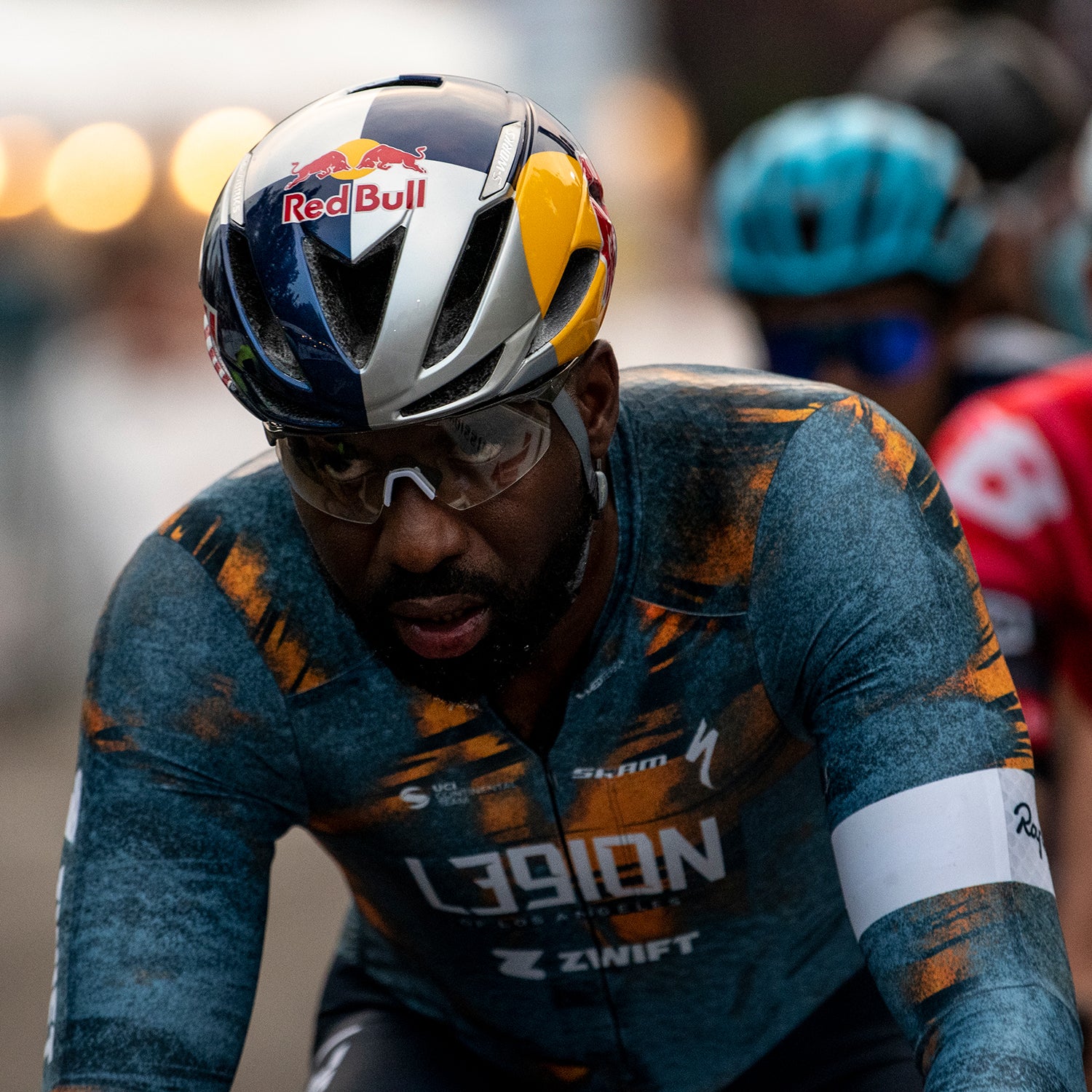There was a time in the not-so distant past when road bike racing was a thriving professional sport in the United States. Top riders chased hefty prize purses at races across the Southeast and Midwest, while American pro teams battled European squads from the Tour de France at the Amgen Tour of California and USA Pro Challenge.
Today, the U.S. pro road scene is on life support after half a decade of rapid sponsorship divestment. Gone are the big tours and the big paydays. Only a handful of pro teams remain.
Amid this landscape, Justin Williams believes he has a plan to bring American pro road racing back to life.
“Think of this as a defibrillator,” Williams says. “I want to bring a shock to the heart of cycling in America.”
Williams, who earlier this year launched his L39ion of Los Angeles pro racing team, is putting $100,000 in prize cash up for grabs at a new criterium in California. Criteriums are fast multi-lap races held on short circuits, often in urban areas, where fans can see riders go by again and again. Called Into the Lion’s Den, the race will be held October 30 in downtown Sacramento.
The flashy $100,000 purse is an eye-popping payout in the fickle world of U.S. pro racing, where riders often compete for a few thousand bucks. And the cash is to be split evenly between the pro men’s and women’s fields, which will both take on 70 minutes of fast and aggressive racing.
For each race, $10,000 of the purse is earmarked for mid-race primes—races within the race designed to whip up the pace. The remaining $40,000 will be paid to the top-ten riders who cross the line. Organizers have yet to determine the exact sum taken home by the winners, but say it will be a healthy five-figure payout.
“I want to change the way that crossing the finish line first feels,” Williams says. “I want those big cardboard checks to actually have a big amount of money on them, not just like $2,000 bucks.”
Into the Lion’s Den is the marquee event of a daylong cycling expo and Halloween event in downtown Sacramento, featuring bike rides, a vendor expo, and amateur races. The idea is to attract casual fans with the festival, and then have them stay to watch the pro riders battle for the big payday.
Williams is hoping to recreate the energy he saw at the now-defunct Red Hook Criterium in Brooklyn, and the San Rafael Crit in Marin County, both of which attracted huge crowds. He hired event promoter Ryan Dawkins to produce Into the Lion’s Den, because Dawkins promoted the old San Rafael Criterium, which often attracted thousands of spectators.
Dawkins said the crowds came, in part, to watch top pro riders like Williams compete.
“I used to pay for Justin’s gas money to come up,” Dawkins said. “That’s how he was able to make it work.”
A decade ago the San Rafael Crit paid out $2,500 in prize cash to both the pro men’s and women’s fields—barely enough to cover the cost of travel and housing.
Prize purses have increased in recent years, but nothing approaching the $100,000 for one race that Williams is offering. The ten-race series, for example, has a total prize purse of $150,000, split between both genders, and doled out across ten different events.
Even within the wider world or professional bike racing, the $100,000 purse stands out. The winner of the Tour de France pockets nearly $600,000 in prize money for a race that encompasses three weeks and thousands of kilometers. At Into the Lion’s Den, the winners may cover fewer than 50 miles.
Williams has plans to launch additional criteriums with similarly large payouts, but he did not have details for his future events. His goal is to bring enough cash back into the sport to help support more riders to race full-time.
“I want these races to matter and I want them to touch people,” he says. “I want there to be a reason for cyclists to keep living the dream in a way that makes sense financially.”
Prior to launching his team, Williams won over thousands of fans on social media with his thrilling victories, and he built a sizable following on YouTube by analyzing race footage. In recent years he’s also garnered international headlines for opening up about the bias he faced in pro road cycling due to his background. He and his brother, Cory, are of Belizean and African descent, and they grew up in inner-city Los Angeles.
Amid the economic downturn in pro road cycling, Williams’ success with his professional team and the big prize purse is akin to having pulled a rabbit out of a hat. He brought on virtual cycling platform , bike manufacturer Specialized, and other sponsors to fund his team. For Into the Lion’s Den, he tapped his component backer, , for funding.
Williams said that financial backing is available in the U.S. bike market—he’s simply had to find a new way to provide value to brands willing to back his vision. His team invests heavily in producing videos and in managing its social media. All of the riders participate in in-person and virtual rides with fans across the country. And the team preaches a message of inclusivity in a sport that has traditionally attracted white and upper-class participants.
“Cycling in America is a billion-dollar industry so the money is there,” he said. “If we can create something that creates value for these brands, they’re happy to be a part of it.”


